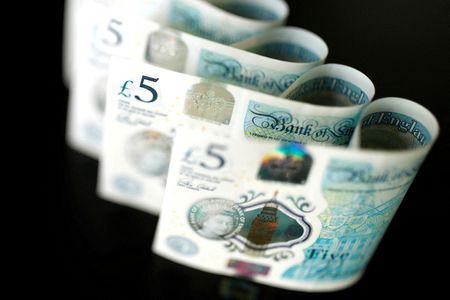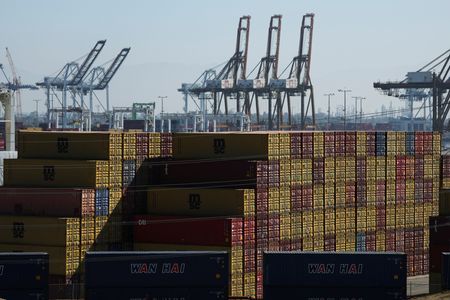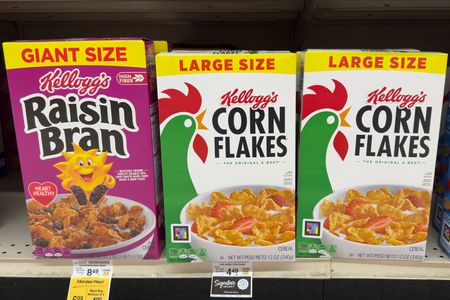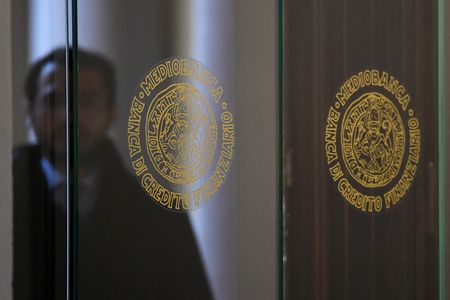By Johann M Cherian
(Reuters) -Sterling slipped on Friday and was trading close to a more than two-week low after data showed the UK economy contracted for the second month, boosting expectations that the Bank of England could lower borrowing costs next month.
Gross domestic product shrank by 0.1% after a 0.3% drop in April, the Office for National Statistics said, primarily dragged by weakness in industrial and construction output.
“Though it would be wrong to conclude from the GDP data alone that the economy is coming under greater pressure, there are genuine questions emanating from the jobs market and whether it is beginning to fall apart more quickly,” said James Smith,
an economist at ING.
“For the (BoE), it would likely force a rethink on the pace of rate cuts. Until now, officials have appeared highly reluctant to move beyond their recent, gradual once-per-quarter cutting pace.”
The pound weakened 0.26% to $1.354, while against the euro it slipped 0.2% to 86.35 pence.
Yields on short-term gilts, often a reflection of interest rate expectations, were steady after easing about two basis points earlier in the day.
Traders are now pricing in a 78.3% chance the BoE could deliver a 25-basis-point interest rate cut in August, versus the 64% probability they were pricing in two weeks ago, data compiled by LSEG showed.
Friday’s data adds to worries for finance minister Rachel Reeves, with economists saying it looks likely she will need to raise taxes again in the upcoming Autumn budget as the government strives to balance its public accounts.
UK markets took a beating last week after the Labour government was forced to pass a highly contested welfare bill that did little to make good on the spending cuts initially hoped for and heightened the uncertainty regarding the sustainability of government finances.
Globally, investors were rattled by U.S. President Donald Trump’s latest tariff escalation as he said he would impose a 35% rate on Canadian imports next month, while other trading partners are likely to face blanket levies of 15% or 20%.
The pound firmed 0.5% against the Canadian dollar and last fetched C$1.855.
Analysts have said that Britain’s deal with the U.S. has made it less exposed to uncertainty on the trade front, which was also reflected in the pound’s 8% rise against the U.S. dollar so far this year.
(Reporting by Johann M Cherian; Editing by Emelia Sithole-Matarise)










